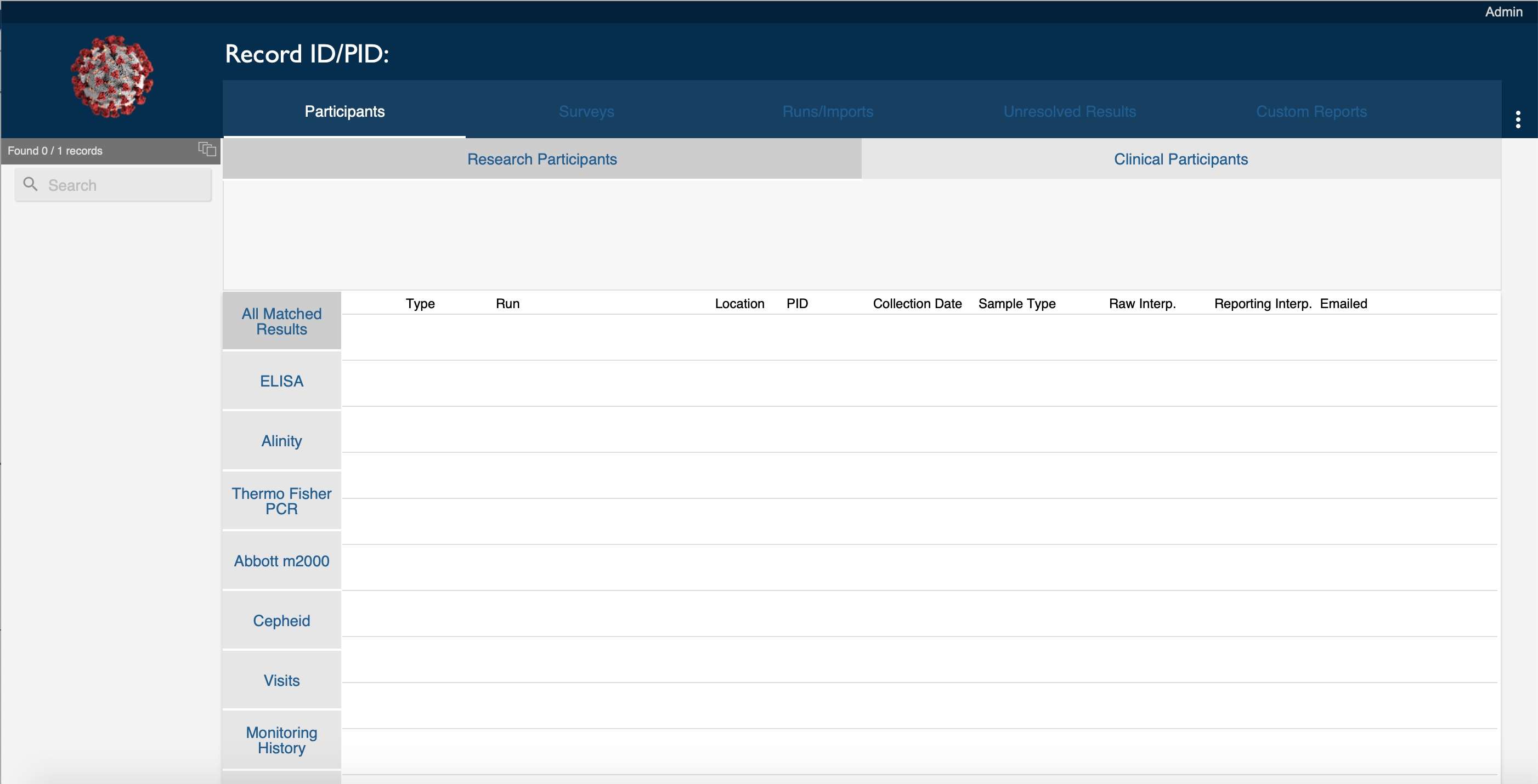The fight against the rapid spread of COVID-19 required accessible and reliable testing. During the initial surge of the highly contagious virus in 2020, many organizations and laboratories pivoted to do what was necessary to help minimize the spread. A renowned research institution was no exception and made a bold decision to convert its labs to a full-time COVID testing and research center.
The facility and its team of researchers were already familiar with clinical research studies related to chronic infectious diseases. However, the labs were completely remodeled to accommodate rigorous and efficient COVID testing. Then all they needed was technology to streamline how to analyze and report the test results.
The Challenge
The Support Group was tasked with building a system to house the COVID data. Of course, participant demographic data was required information, but details based on a variety of data points, including collection date, viral load, type of specimen, etc., and the conclusions based on the data had to be accurately captured as well.
The site performed two types of COVID tests. The polymerase chain reaction (PCR) test diagnosed the virus from a nasal swab. A serology test involved a blood draw to detect the presence of viral antibodies. The two methods posed different requirements for the analyzers – the machines used to evaluate the specimens – but all the data would be stored within a single, centralized system.
The Solution
We designed a FileMaker solution that received data via a manual import from the analyzer machines. Then, participant data had to be linked to the respective data records to ensure proper reporting.
Once users confirmed that data had been properly imported and that the results were accurate, they used the FileMaker application to transmit the information to the Department of Health electronically, thereby minimizing their administrative work. In addition, the system simultaneously emailed the test results to the respective participants. This automated communication system made it possible for the scientists and researchers to focus on the ever-evolving nature of the virus and adjust the analyzers accordingly.
Needless to say, security and privacy were top priorities. Despite the very public circulation and sharing of general health information, the Health Insurance Portability and Accountability Act (HIPAA) protects sensitive individual healthcare information. As a result, the team specified a strict set of security rules for the software.
We used Health Level Seven (HL7) as a guideline for the data transmission part of the application. HL7 is an international standard used to encode and transfer healthcare data among providers. So, once we ensured that messages were HL7 compliant, we transmitted them via an Application Programming Interface (API), specifically Simple Object Access Protocol (SOAP) architecture, because of its security features. It also accommodates different operating systems, programming languages, and platforms.
The client was adamant about securing the server as well. So, we arranged it so that the application's host server did not connect to anything, not even a Simple Mail Transfer Protocol (SMTP) server for electronic mail transmission.
The FileMaker application exclusively connected to a server and computer, and both were located in a locked room within a secured facility at an undisclosed location. The computer had limited Internet access. It only had what it needed to manage the SOAP API calls.
It's helpful that FileMaker works well with Active Directory for external authentication. We applied Active Directory security services in tandem with FileMaker security settings for another layer of protection. This connection allows the client's IT department to strategically administer user permissions and application access.
Sample of FileMaker custom reporting application
We should mention that the data was always protected while developing the app. We did not have access to any production data. We built the modules using dummy data, and the client took care of importing and auditing the live data. This condition enhanced how we worked with the client. Our communication had to be clear and concise. And, we availed ourselves to them when adjustments were needed so as not to prolong the process any more than necessary.
The Benefits
We essentially developed a robust reporting and communication system for this team of scientists and doctors. The application transmitted reliable and accurate COVID test data to the Department of Health electronically. And it relayed timely COVID test results to participants who were evaluated at the center.
From a research perspective, users ran detailed reports based on the data that was collected and stored within the app. They also downloaded large datasets, which was very helpful to their work.
This tool was critical to improving their workflows. And, it allowed users to focus on minimizing the spread and learning as much about the virus as possible.
There are existing software options in the market that offer similar functionality, but they're less adaptable. Their custom FileMaker solution made it possible for the team to respond to changes quickly. For example, if we had to add a new analyzer or change the specifications for a data point like the amount of viral load, that could be done in a matter of hours. There was no need to wait until the next product release for enhancements or fixes.
The Future
We are very proud to be part of the team that developed a system that ultimately provided quick test results to people in a time of need and important research data for the future. The system made it possible to evaluate and share test information as well as collect and analyze research data efficiently.
We continue to support and maintain the solution. As the dynamics of COVID continue to evolve, we update the system to accommodate those changes.
We see a potential future enhancement could be to automate the entire process. For example, rather than manually importing the data from the analyzer machines into the FileMaker application, we could arrange to transmit the data via API. However, this would be a complex undertaking, as each analyzer has its own methodology/programming for connecting with other computer systems.
At some point, it might also be helpful to set up the app to work with other analyzers. The system currently works with three machines from two different manufacturers, but other options are available.
We've been developing custom apps for more than 30 years. We helped one of our clients develop a reporting application and another client track inventory efficiently. Read more of our customer success stories and case studies to see how custom software improves operational productivity. Feel free to contact us to learn more about our custom software development services or schedule a free initial consultation.




